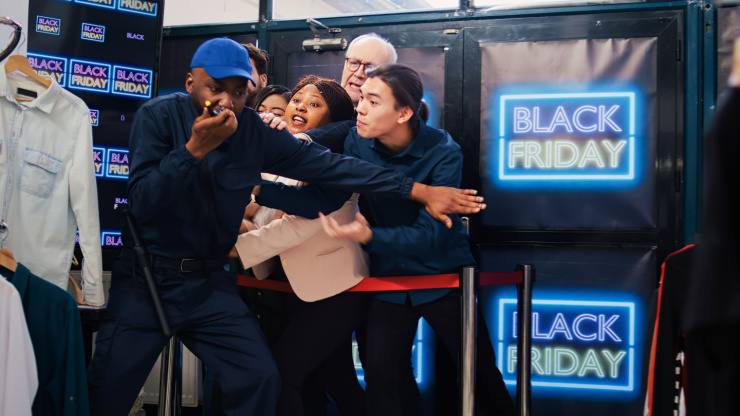Americans spent quite a bit on Black Friday, pushing sales for the annual day of sales and promotions up by 2.5% compared to last year. But, reports Suzanne Kapner and Imani Moise in The Wall Street Journal, consumers aren’t using as many store cards to do it. They write:
Retailers aren’t just having trouble getting shoppers to buy sweaters and other holiday items this season. Store credit cards are also a tougher sell.
The cards, which typically can only be used at a particular chain, have been a lucrative source of revenue for retailers as merchandise sales have slowed. But the stream is drying up as Americans carry fewer cards and increasingly finance purchases with buy now, pay later providers. Interest rates surpassing 30% on some retailers’ credit cards aren’t helping, according to analysts.
U.S. retail sales on Black Friday rose 2.5% from last year, according to Mastercard SpendingPulse, which measures sales in stores and online. The result was helped by gains in purchases of jewelry and apparel as well as spending on sporting events and at restaurants. Foot traffic at U.S. retailers rose 2.1%, with health and beauty brands seeing double-digit-percentage increases from last year, according to store traffic analytics provider RetailNext.
About 182 million people are expected to shop online and in stores between Thanksgiving and Cyber Monday, according to the National Retail Federation, a trade group.
Offered by retailers from Neiman Marcus to Target, store-branded,or private-label credit cards as they are sometimes called, have suffered from the yearslong shift to e-commerce and the temporary store closures during the Covid-19 pandemic. That is because most customers open such accounts at cash registers inside bricks-and-mortar stores.
Private-label card originations fell 37% last year compared with 2015, according to the Consumer Financial Protection Bureau. Over that period, originations of general purpose credit cards grew 33%. Revolving balances on private label credit cards and general credit cards are moving in a similar pattern.
The CFPB concluded in a recent report that the decrease in private-label originations was likely due to less consumer demand.
Read more here.
If you’re willing to fight for Main Street America, click here to sign up for my free weekly email.






